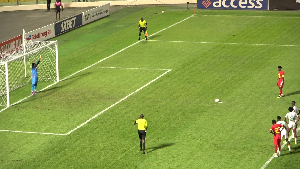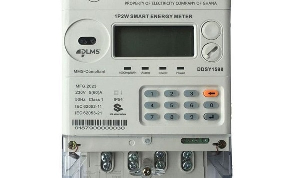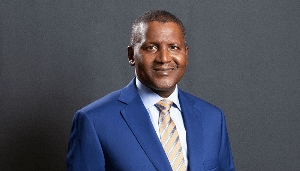After recording several negative test results from the beginning of the month, Ghana recorded its first two positive cases of the coronavirus pandemic on 12th March 2020.
The two cases which were both imported were later discovered to be the Norwegian Ambassador to Ghana and a Ghanaian staff of UNDP who had returned from Turkey within the past two weeks before they were confirmed.
A day after the cases were confirmed, contact tracing began to identify all the persons the patients had encountered to help curtail the spread of the virus in the country.
Fear gripped the country with the initial cases as individuals and groups started calling for the closure of the country’s borders to prevent more people from coming in with the virus.
On Sunday, 15th March 2020, the country recorded four additional cases of the virus.
President Nana Addo Dankwa Akufo-Addo, after this was announced, banned all public gatherings including conferences, workshops, funerals, festivals, political rallies and church activities and related events as part of measures to stop the spread of coronavirus in the country.
The President in a national address on Sunday said the ban will be in force for the next four weeks.
He also closed down all schools in the country effective Monday, 16th March 2020, with the exception of final year students, that is BECE and WASSCE candidates.
The president also banned the entry into Ghana from March 17, 2020, of anyone who had been to a country with more than 200 cases of the pandemic.
With the case count increasing, people rushed out to various outlets to get protective equipment such as face masks, gloves and sanitizers.
These were fast running out and retailers, including pharmacists took the opportunity to increase the prices of sanitizers which earned them serious criticism from a cross-section of Ghanaians.
As the commodity began running out, the president had a meeting with the leadership of the pharmaceutical industry to among other things, decide on how the country can produce sanitisers to reduce the dependence on imported ones.
On March 21, Ghana recorded its first coronavirus death case. The victim was a 61-year-old Lebanese trader and resident of Kumasi.
That evening, Nana Addo Dankwa Akufo-Addo ordered the closure of Ghana’s borders from Sunday, March 22, 2020. This was to help reduce further escalation of the Coronavirus infection rate in the country.
“Anybody who comes into the country, before midnight on Sunday, will be mandatorily quarantined and tested for the virus," President Akufo-Addo announced during his broadcast to the nation on Saturday, March 21, 2020.
The address on Saturday was his third address to the nation since Ghana recorded its first case of the novel Coronavirus. He said all the country's borders - land, air and sea - will be closed at midnight on Sunday. "Anyone who comes will be quarantined for 14 days," he added.
At the time of this announcement, the country’s case count of the virus was 19.
A few hours to midnight on Sunday, aeroplanes carrying a total of over 1,000 passengers arrived at the Kotoka International Airport from various countries.
All passengers and crew members were moved from the airport to some hotels in the capital to begin the mandatory quarantine period.
After the testing of their samples began, 25 of the quarantined people's results came out positive on 24th March, increasing the country’s case count from 27 to 52. At this time, Ghana had already recorded a second death from the pandemic.
With Ghana recording 137 cases with 4 deaths and 2 recoveries by 27th March, the president imposed a two-week partial lockdown on Accra, Tema, Kasoa and Kumasi effective 1:00am on Monday, 30th March.
Nana Akufo-Addo directed that people in the affected areas could only go out to get essential items such as food, conduct banking transactions or use the public toilet during the period of the lockdown.
The lockdown was expected to end on 12th April 2020, exactly a month after the country recorded its first two cases.
But the president further extended the lockdown by another week. The country as of 12th April, had confirmed 408 Coronavirus cases with eight deaths and four recoveries.
To the dismay of many, the president lifted the ban on movement in Accra, Tema, Kasoa and Kumasi on 19th April. The case count jumped from 137 before the lockdown to 1,042, recording 905 new cases within the period.
Within the last month, since the lockdown was lifted, the country has recorded 4,085 new cases increasing the case count to 5,127. 22 lives have so far been lost in this fight whilst 494 patients have recovered from the pandemic.
The country, therefore, has 4,611 active cases as at today May 12 2020.
According to the Director-General of the Ghana Health Service, Dr. Patrick Aboagye “we have about 180 awaiting their second negative tests which will increase the number of recoveries."
Two months of battling the pandemic which began in Accra with two cases, Ghana has now confirmed cases in all but three regions which are the Savannah, Ahafo and Bono East regions.
The president has said on several occasions that the reason the country has seen a rapid increase in its cases is because of the approach authorities took to aggressively go after the virus.
The Ghana Health Service has however assured that Ghana has reached its peak in the fight against the pandemic and lesser new cases are going to be recorded in coming days.
Ghanaians are encouraged to keep taking the necessary safety precautions to protect themselves and others from contracting or spreading the virus.
“I will continue to urge all of us to continue to practise social-distancing, wash our hands with soap under running water, refrain from shaking hands, and wear our masks whenever we leave our homes. Businesses and other workplaces should operate and observe staff management and workplace protocols of social distancing. This applies equally forcefully to public transport operators and users of our marketplaces. We must observe these measures religiously, as they are the weapons of our battle against the virus,” the president said in his address to the nation during the May Day celebration.
He further urged Ghanaians to “stop the stigmatisation of recovered persons as it will rather drive people away from getting screened, tested and treated. The stigmatisation of recovered persons must not go on, because if the virus did not end their lives and livelihoods, the stigma from members of their communities should not. The overwhelming majority of them will continue to live perfectly normal lives and cease to be sources of infections.”
The closure of the country’s borders, as well as the ban on public gatherings, however, remain till the 31st of May 2020.
General News of Tuesday, 12 May 2020
Source: www.ghanaweb.com

















